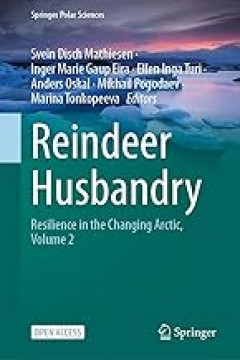Filter by

Becoming A Young Farmer
This open access book is based on a multi-country collaborative research project focussing on Canada, China, India, and Indonesia. It responds directly and concretely to concerns about the generational sustainability of smallholder farming worldwide– reflected in the current UN Decade of Family Farming. Drawing on research that asks how (some) young people continue to pursue a (future) li…
- Edition
- -
- ISBN/ISSN
- 978-3-031-15233-7
- Collation
- XXII, 444
- Series Title
- -
- Call Number
- -

Ethnomusicology, Queerness, Masculinity
This open access book explores the disciplinary, disciplined, and recent interdisciplinary sites and productions of ethnomusicology and queerness, arguing that both academic realms are founded upon a destructive masculinity—indissolubly linked to coloniality and epistemic hegemony—and marked by a monologic, ethnocentric silencing of embodied, same-sex desire. Ethnomusicology’s fetishizati…
- Edition
- -
- ISBN/ISSN
- 978-3-031-15313-6
- Collation
- X, 240
- Series Title
- -
- Call Number
- -

Handbook of Educational Reform Through Blended Learning
This open access book provides related theories, methods, strategies, and practical cases for implementing education reform through blended learning in curriculum, program, and institutions in the digital age. It sums up the research and practice achievements of blended learning from different research teams, involving more than 20 experts from educational technology, higher education, vocation…
- Edition
- -
- ISBN/ISSN
- 978-981-99-6269-3
- Collation
- XII, 418
- Series Title
- -
- Call Number
- -

'The Bell Curve' in Perspective
This open access book examines the implications of The Bell Curve for the social, economic, and political developments of the early 21st century. Following a review of the reception of The Bell Curve and its place in the campaign to end affirmative action, Professor Tucker analyses Herrnstein’s concept of the “meritocracy” in relation to earlier 20th century eugenics and the dramatic incr…
- Edition
- -
- ISBN/ISSN
- 978-3-031-41614-9
- Collation
- XIII, 124
- Series Title
- -
- Call Number
- -

Handbook of Teaching Competency Development in Higher Education
This is an open access book. It draws from relevant theories and approaches to teachers’ professional development (TPD) and innovative and inspiring TPD practices in higher education. It first lays a solid foundation for the rest of the book, through critiquing prevalent theories, approaches, and teaching competency frameworks guiding TPD in higher education, and defining the key concepts rel…
- Edition
- -
- ISBN/ISSN
- 978-981-99-6273-0
- Collation
- X, 158
- Series Title
- -
- Call Number
- -

Acceleration and Cultural Change
This open access book includes socio-anthropological and anthropo-sociological conversations between one of the world’s leading anthropologists, Thomas Hyland Eriksen, and a young scholar, using his groundbreaking "overheating" approach.This book includes socio-anthropological and anthropo-sociological conversations between one of the world’s leading anthropologists, Thomas Hyland Eriksen, …
- Edition
- -
- ISBN/ISSN
- 978-3-031-33099-5
- Collation
- XXII, 111
- Series Title
- -
- Call Number
- -

Riskante Nähe
Ausgangspunkt der Arbeit ist eine neue, mediale Thematisierung sexueller Gewalt durch pädagogische Fachkräfte seit 2010. Dieser wird zu Beginn der Arbeit als Gegenstand seine ambivalenten Folgen dargestellt. Zum einen entwickelte sich ein großes Potential für Prävention, Intervention und längst überfällige Aufarbeitung. Zum anderen kommt es zu einem gesellschaftlichen Generalverdacht ge…
- Edition
- -
- ISBN/ISSN
- 978-3-658-43049-8
- Collation
- XIX, 403
- Series Title
- -
- Call Number
- -

Reindeer Husbandry
This open access book focuses on climate change, indigenous reindeer husbandry and the underlying concept of connecting the traditional knowledge of indigenous reindeer herders in the Arctic with the latest research findings of the world’s leading academics. The Arctic and sub-Arctic environment, climate and biodiversity are changing in ways unprecedented in the long histories of the nor…
- Edition
- -
- ISBN/ISSN
- 978-3-031-42289-8
- Collation
- XXXVI, 217
- Series Title
- -
- Call Number
- -

Researching with Proximity
This open access book presents a series of speculative, experimental modes of inquiry in the present times of environmental damage that have come to be known as the age of the Anthropocene. Throughout the book authors develop more nuanced ways of engaging with the environmentally vulnerable Arctic. They counter distancing, exoticising, and even apocalyptic imaginaries of the Arctic by staying p…
- Edition
- -
- ISBN/ISSN
- 978-3-031-39500-0
- Collation
- XIX, 215
- Series Title
- -
- Call Number
- -

Entity Alignment
This open access book systematically investigates the topic of entity alignment, which aims to detect equivalent entities that are located in different knowledge graphs. Entity alignment represents an essential step in enhancing the quality of knowledge graphs, and hence is of significance to downstream applications, e.g., question answering and recommender systems. Recent years have witnessed …
- Edition
- -
- ISBN/ISSN
- 978-981-99-4250-3
- Collation
- XI, 247
- Series Title
- -
- Call Number
- -
 Computer Science, Information & General Works
Computer Science, Information & General Works  Philosophy & Psychology
Philosophy & Psychology  Religion
Religion  Social Sciences
Social Sciences  Language
Language  Pure Science
Pure Science  Applied Sciences
Applied Sciences  Art & Recreation
Art & Recreation  Literature
Literature  History & Geography
History & Geography